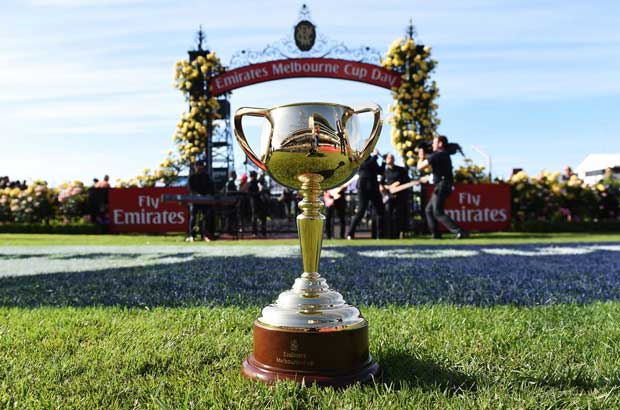
Melbourne Cup tips
Melbourne Cup Race Information
Melbourne Cup
Contested every year on the first Tuesday of November, the Melbourne Cup is the world's richest two-mile handicap race, as well as one of the most prestigious races on the world racing calendar. In Australia, it is commonly referred to as 'the race that stops a nation', and the pinnacle of punting in the land down under.
While the Cup is arguably Australia's best annual sporting event, it also presents a fantastic opportunity for punters to make great profits. With a huge field of 24 horses, and every man and his dog having a bet on the race, the value on offer is tantalising. This is especially true for punters who bet in the quinella, trifecta and first four markets, with the tote pools swelling to inordinate levels.

Even though the Cup is such an Australian icon, it has been the international raiders, particularly from Europe, who have dominated the race in recent years. The 3,200-metre or 'mile and a half' distance suits these superior European stayers, who are similarly favoured by the wide, expansive track of Flemington.
The international domination of the race has been so complete in the past decade that the last time an Australian-bred horse won the race was in 2009, when Shocking got the job done.
Melbourne Cup betting considerations
Barrier
There are so many factors to assess when picking a Melbourne Cup horse. One of the most important is the barrier of the horse. While some punters claim that the barrier draw doesn't play a role in the Melbourne Cup, the stats suggest otherwise:
- The barriers with the most wins in Cup history are 5 and 11, both with seven wins.
- The barriers with the second most number of wins are 10 and 14, each with six wins.
- The first twelve barriers (1 to 12) have produced 57% of the winners.
- The only barrier never to produce a winner is 18.
However, the importance of the barrier goes beyond a simple win percentage. Factors like speed out of the gate and the horse's preferred settling position in the field are also important to assess when working out your Melbourne Cup tips. Professional racing form analysts like Deane Lester produce speed maps to assist punters with this analysis.
Weight
Weight is another important factor to assess. In recent years, there has been a definite trend favouring the lighter-weighted horses.
Here are some Melbourne Cup stats relating to weight:
- The heaviest weight carried to victory was 66kg, by Carbine in 1890.
- Makybe Diva's third consecutive Cup victory in 2005 was with a weight of 58kg. That was the last time a Cup winner has carried more than 56.5kg to victory.
- The previous 4 editions have all been won by a horse that had to carry 53kg or less.
Horse's Sex
- Stallions have won the most Melbourne Cups, with fillies winning the fewest.
- No mare has won the Cup since Makybe Diva's third consecutive triumph in 2005.
Race Favourites
- 32 favourites have won the Melbourne Cup, or 1 every 5 Cups.
- The last favourite to win was the Gai Waterhouse-trained Fiorente in 2013
Melbourne Cup Tips
For plenty of punters, the Cup is one of the few races that they will bet in throughout the year. Interestingly, it is also one of the hardest races to assess on the racing calendar due to the following factors:
- There's usually a capacity field of 24 horses contesting the race (significantly more than most other races)
- There's a question mark over all the horses of whether they will run out the 3200 metre distance
- The race contains the most runners from overseas who have little or no form on Australian race tracks
For these reasons it is worthwhile getting good advice. All of Australia's media tipsters and punters with independently verified profits are posted in the horse racing tip market. It's worth looking at before you bet.
